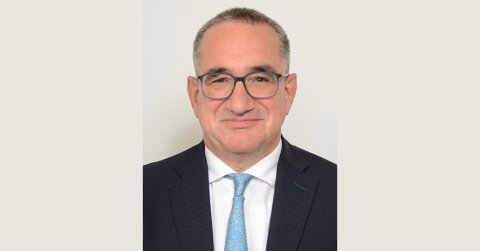
In a world where nearly every aspect of our lives is connected, encryption is what keeps our digital systems trustworthy. It protects everything from financial transactions to national intelligence. But that protection won’t hold forever. Quantum computing, once the stuff of science fiction, is edging closer to practical reality. With it comes a new set of challenges to how we keep information secure.
Here in the Gulf, where digital transformation is accelerating at breakneck speeds, the stakes are rising. Initiatives like the UAE’s Digital Government Strategy and Saudi Arabia’s Vision 2030 have led to an explosion of digital services, cloud platforms, and cross-border data flows. But with this growth comes a stark reality: adversaries are already harvesting encrypted data today, waiting for quantum computers to break the cryptographic algorithms we rely on.
Rethinking network security for the quantum age
Quantum-safe networks (QSNs) are emerging as a vital part of the solution. These systems combine post-quantum cryptography (typically at application layer) with techniques like symmetric key infrastructure and / or quantum key distribution (at IP and Optical level) to build layered security frameworks across infrastructure. The goal isn’t just to defend against future risks but to harden networks now, add risk mitigations measures with long term security, especially as cyberattack sophistication and frequency increase.
This shift is already underway. In Europe, a live trial between Proximus and Nokia demonstrated how quantum encryption can be layered into live networks. In Asia, similar pilots with SK Broadband and Korea Hydro & Nuclear Power have proven scalability. And closer to home, operators in the GCC are laying the groundwork for similar capabilities, driven by the region’s urgent push toward digital sovereignty.
This is happening against the backdrop of a booming data center market. The GCC’s data center sector is projected to more than double in size by 2030, growing from $3.48 billion in 2024 to over $9.4 billion. As demand for AI applications, cloud infrastructure, and sovereign hosting grows, securing these environments from emerging threats becomes mission critical.
Making the shift: what it really takes
Getting quantum-ready is not an overnight process. It begins with mapping what you already have. Surprisingly, a large share of organisations still lack complete visibility into their cryptographic assets, a gap that becomes riskier as quantum threats move from theoretical to practical.
Alongside conducting audits, organizations can begin implementing Quantum-Safe Cryptography (QSC), particularly at the network layer—IP and optical—where deployment is significantly faster than at the application level. This approach enables immediate risk mitigation by securing critical infrastructure early, while teams are trained to adopt crypto-agile and resilient processes and prepare for broader integration..
This transition also needs to be seamless. With the help of zero-touch encryption, automated policy management, and advanced orchestration platforms, it is possible to strengthen security without compromising performance or uptime. These tools are especially valuable in the Gulf’s smart infrastructure environments, where service continuity is non-negotiable.
Scaling security for the region’s digital ambitions
Telecom operators, hyperscalers, and data centre providers across the Middle East are already feeling the pressure to enhance their security posture. The GCC cybersecurity market is projected to skyrocket, from $4.8 billion in 2024 to nearly $15 billion by 2031. That growth isn’t just driven by threat vectors. It’s a direct response to the expanding digital landscape and the geopolitical importance of regional infrastructure.
Modern chipsets now support encryption at speeds of 800G and deliver up to 75% energy savings over previous generations. In the Gulf’s hot and high-demand environments, that’s a significant advantage. At the same time, architecture must accommodate encryption across long-haul optical networks and sovereign cloud environments without adding latency. These are the very requirements regional carriers are tackling now, often in collaboration with international partners and standards bodies.
A strategic opportunity to lead
This isn’t just a defensive play. It is a chance to lead. The global market for quantum-safe technologies is expected to grow rapidly in the years ahead. And countries like the UAE, Saudi Arabia, and Qatar are already investing in quantum computing R&D and advanced AI ecosystems, signaling their intent to be at the forefront of this wave.
The GCC’s focus on cyber resilience is also accelerating. National cybersecurity agencies, such as the UAE Cyber Security Council, are actively collaborating with private and international entities to address vulnerabilities and raise the region’s security posture. A 2025 report highlighted over 223,000 vulnerable assets in the UAE alone, with many remaining exposed for years, making quantum resilience a non-negotiable pillar of future planning.
Operators in the region have a unique chance to go a step further by offering quantum-safe infrastructure as a service. In doing so, they won’t just be securing their own networks, they will be enabling banks, hospitals, utility providers, and governments to do the same.
Resilience isn’t optional, its foundational
Quantum computing is no longer an abstract concept. While it promises breakthroughs in everything from medicine to logistics, it also threatens the cryptographic systems our societies rely on. In regions like the GCC, where digital growth is central to economic strategy, the consequences of inaction could be severe.
By embedding quantum-safe technologies into the core of their networks, Gulf organizations can secure their most valuable data, protect their national priorities, and lay the foundation for trusted digital ecosystems. In the quantum age, it’s not just about reacting to what’s coming. It’s about shaping it. Because when trust, privacy, and security are on the line, resilience isn’t a luxury. It’s the cornerstone of progress.
This Op-ed is authored by Carlo Corti, Head of Optical Networks, Nokia Middle East and Africa


